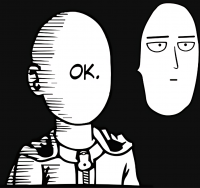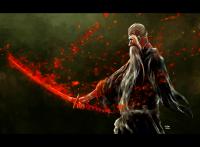Get Over Your Game Balance Obsession
#1
19 January 2014 - 09:13 PM
Game critics pinpoint lack of balance as a terrible design flaw, and rightly so. Many games are indeed poorly balanced, to the point where these imbalances take away from a player’s ability to derive fun. But the reverse is also true. It is entirely possible to sacrifice fun and positive emotional experiences on the altar of balance.
From a design perspective, game mechanics receive the “balanced” and “working as intended” seals of approval if they fit into a predetermined vision. Fortunately for today’s developers, the games-as-a-service model allows for the rules of a game to change after it has shipped. This puts less pressure on designers to finalize their intended design by launch day, since the holy grail of “balance” is now turned into an always moving, adjustable goal-post. From that point onward, a developer’s philosophy for balancing games is exposed;
Kill the Dissenter
This occurs when designers are reluctant to support creative experimentation or are unable to accept innocuous imbalances that appear after the game is in the hands of the consumer. This usually leads to changes which stifle creativity that comes from players.
Consider Riot Games’ League of Legends. When fans talk about the League of Legends meta-game (adaptations and strategies that transcend the prescribed rule-sets), they think about what players are commonly doing when they play. However, Riot’s philosophy towards balancing their game does not allow a true meta-game to emerge. Instead, characters and mechanics which deviate from the norm are reduced in effectiveness through a process known as nerfing.
Master Yi, a League of Legends champion designed to play the role of “Assassin” and “Fighter”, is a perfect example. Fighters are traditionally played in the top lane of the League of Legends world, while Assassins are sent to the jungle area. Players figured out how to build Master Yi for deadly effectiveness in the middle lane, which is reserved for characters of the “Mage” role. Instead of letting a true meta-game response occur, Riot knocked out Master Yi’s customized middle lane build, thus enforcing a vision of how the character must be played. The League of Legends meta-game was never given enough time to evolve or for players to develop a countering strategy.
This type of balance process can result in players feeling strangled. The psychological rewards for theory-crafting and exploration within the game’s framework are lost, replaced with a constant struggle between game developer and user for what the “allowed” way to play a game is. The designer will tell you what is fun, and what is fun might change next week.
Not “Balanced”, Just Different
In the same genre as League of Legends stands DOTA2 by Valve Corporation. DOTA2’s Naga Siren has all the skills expected of a “Support” hero, but possesses a powerful ability called Song of the Siren. Song of the Siren proved to be overwhelmingly effective in letting the Naga Siren fulfill other roles, such that of the team’s “Carry”— a hero destined to grow powerful in the later stages of the game—by accumulating in-game gold and objects. Instead of destroying the versatility created by Song of the Siren, DOTA2’s designers made the character’s weaknesses more apparent by adjusting her effectiveness during the early game with a nudge to her other skills. DOTA2’s approach to balance allows true shifts in the meta-game to occur unrestricted, even if these lead to gameplay not originally built into the game.
Emergent Gameplay
As designers, we must differentiate between actual game bugs and harmless but emergent forms of play. We must learn to let go of our brainchildren and accept that the people experiencing your game might enjoy it in a way you did not anticipate. The wrong approach to game balance breaks the spirit of immersion and fun that many designers claim to desire. Game balance should facilitate emergent fun, never destroy it.
Click here to view the article
#2
19 January 2014 - 09:53 PM
I've never been one to get really serious while playing competitive games, so I've never really worried about game balance. Even for games that I do play like Street Fighter, Smash Bros, TF2, etc. there are tier lists for characters and weapons, but I generally ignore them. I go with whatever I feel is the most fun to play, and if I'm using a low tier option and win, it feels even better.
That being said, I can understand why very serious players think this way. If you're constantly losing to a certain combo of characters/items because of the advantages they have, it feels like you're being punished for playing with the combos you like. It feels as if you need to use the top tier options in order to compete at the highest level.
But this really only affects people playing at the highest level of competence, and that's an entirely separate issue. Should developers design their games to appeal to the pro level players? With world competitions and eSports growing, and having a larger influence on our subculture, maybe the answer is yes. There will always be games for the casual market (By "casual market" I don't mean the people who bought a Wii for Wii Sports, I mean people like us
So my answer is a very non-committal "I understand that you feel that way, and respect your opinion."
#3
19 January 2014 - 10:49 PM
#4
19 January 2014 - 11:19 PM
Games "balance" games in order to force players to spend real money to pass a part easier. Most players have no idea what strategy is but know "i need stronger weapon. Here real money. Make me stronger. I win. Everyone else noobs."
#5
19 January 2014 - 11:33 PM
 genobeam3, on 19 January 2014 - 10:49 PM, said:
genobeam3, on 19 January 2014 - 10:49 PM, said:
Meta Knight has amazing air control, a powerful attack set, high speed and amazing recovery.
It shouldn't be a surprise that Hal Laboratories, creators of the Kirby series, are also the guys behind Smash Bros.
#6
20 January 2014 - 12:49 AM
I recently got back into playing the aforementioned competitive blizzard games where the game balance shifts as quickly from patch to patch as it does expansion to expansion. I play both at reasonably high levels (diamond/masters sc and between 2.2-2.4 rated arenas) and while its frustrating not being able to simply play however you want, due to nerfs and buffs forcing you into the flavor of the month cookie cutter strategies, it's also a uniquely gratifying feeling doing well at the same time.
Long story short, in efforts to balance, you sometimes have to break certain game aspects to make others viable. I think true balance is almost impossible overall especially in the case of multiplayer games, you can't cater to everyone at the same time.
#7
20 January 2014 - 01:59 AM
#8
20 January 2014 - 02:52 AM
 Bateman, on 20 January 2014 - 12:49 AM, said:
Bateman, on 20 January 2014 - 12:49 AM, said:
Meanwhile, at Valve:
#9
20 January 2014 - 08:10 AM
 Bateman, on 20 January 2014 - 12:49 AM, said:
Bateman, on 20 January 2014 - 12:49 AM, said:
I haven't played World of Warcraft in about six months, but those patches never really forced me to switch it up. Hell, I was owning kids as a Fury Warrior when Arms is the de facto PvP spec. However, those patches do become a lot more important when it comes to 2200-2400 rated 3v3s, I'll give you that.
 Bateman, on 20 January 2014 - 12:49 AM, said:
Bateman, on 20 January 2014 - 12:49 AM, said:
I think there's a way to find that middle ground, but what happens most of the time is that eventually you get to a point where everything needs an overhaul to be equally competitive/viable again. This is the place where Blizzard is (or was the last time I played) at with World of Warcraft.
 Stann, on 20 January 2014 - 02:52 AM, said:
Stann, on 20 January 2014 - 02:52 AM, said:
#10
20 January 2014 - 08:58 AM
No game this large will ever be perfect because there's simply too many factors to look at but they do their best to make sure that there isn't one Champion that just CAN'T be countered when played well.
#11
20 January 2014 - 10:55 AM
#12
20 January 2014 - 11:06 AM
 XtraT, on 20 January 2014 - 10:55 AM, said:
XtraT, on 20 January 2014 - 10:55 AM, said:
I assume you mean MMOs or MOBAs, because TF2 still regularly gets the top third most played game on Steam, is 7 years old, and is completely unbalanced.
#13
20 January 2014 - 11:11 AM
 XtraT, on 20 January 2014 - 10:55 AM, said:
XtraT, on 20 January 2014 - 10:55 AM, said:
That's why I pointed out:
Quote
In the article I'm criticizing choke-hold styles of balance that kill emergent game play, not the preliminary balance that makes PvP systems enjoyable. The two are different. You can have something crop up in your PvP that is very dominant, and instead of erasing it, I believe the correct way is to address other, under-utilized things.
One style of balance kills creativity because it flattens everything into the same field of non-effectiveness, and the other promotes under-used mechanics by bringing them up to par.
Guess which one is easier?
#14
20 January 2014 - 11:13 AM
 Archael, on 20 January 2014 - 11:11 AM, said:
Archael, on 20 January 2014 - 11:11 AM, said:
One style of balance kills creativity because it flattens everything into the same field of non-effectiveness, and the other promotes under-used mechanics by bringing them up to par.
Guess which one is easier?
This is why I've said over and over again that I hate removing things from the game.
#15
20 January 2014 - 12:16 PM
 Archael, on 20 January 2014 - 11:11 AM, said:
Archael, on 20 January 2014 - 11:11 AM, said:
One style of balance kills creativity because it flattens everything into the same field of non-effectiveness, and the other promotes under-used mechanics by bringing them up to par.
Guess which one is easier?
Nerfing the 1 overpowered thing is much easier than buffing all the ''under-utilized things''. Also, buffing said things can unfavorably affect the meta and create even more broken settings on their own. Plus, said buffing is also exponentially harder the more abilities and heroes/classes/guns/etcs the game has.
For PvP, of course it's easier to nerf the guy on top instead of bringing everyone else at its level but it's also the better way. At least that's my opinion as a PvP lover.
For single player I agree that nerfing isn't the best thing, unless it's grossly broken and imbalanced (near invincibility, etc). Since there's really nothing to ''win'', it's usually better (but still harder) to buff all the crappy skills/weapons/etc no one uses.
#16
20 January 2014 - 12:38 PM
 XtraT, on 20 January 2014 - 12:16 PM, said:
XtraT, on 20 January 2014 - 12:16 PM, said:
Easier, sure. But it creates a more fun experience if you don't just look at the guy on top and knock him down. What does he have over the "inferior" classes, mechanically speaking? If it's that Mr. Imba is just lightyears beyond them, then nerf him. If it has something to do with the inviability of another class' abilities, then address that.
Proper identification of the source of the issue plays a huge part in this. All too often I see the symptoms being attacked instead of the source of the disease itself.
#17
20 January 2014 - 01:54 PM
Also, nerfing doesn't mean making the thing useless. Sometimes a 1-5% nerf or 1 ability tweak is all it takes. Take Hearthstone for example, they were some pretty strong cards that only got nerfed by 1 health/attack/mana. The cards are still worth using, but they're not as good as before.
Anyway, it's very game/genre dependent. LoL, Diablo, FPSs, I have a different opinions on all of them and I could talk about balance all day
#18
20 January 2014 - 02:10 PM
 XtraT, on 20 January 2014 - 01:54 PM, said:
XtraT, on 20 January 2014 - 01:54 PM, said:
That's very true. What I meant was more get a broad range of educated opinions. The guy pissing and moaning on the WoW Arena forums about how OP Warlocks or Death Knights are needs to be ignored.
 XtraT, on 20 January 2014 - 01:54 PM, said:
XtraT, on 20 January 2014 - 01:54 PM, said:
In the MMOs I've played competitively, when something is nerfed, all too often it's nerfed to the ground.
 XtraT, on 20 January 2014 - 01:54 PM, said:
XtraT, on 20 January 2014 - 01:54 PM, said:
This is also very true.
#19
21 January 2014 - 12:05 AM
There has been a general imbalance throughout the series that has stemmed from what I like to call disposable items, and also from fact that damage rushing your opponent is generally the most successful and easiest way to win most of the time. I think the series got a bit better in that regard starting with X, but not much.
Disposable items are mostly equipment that is useful for only a very short period of time. There is typically little variety in the equipment throughout most of the game besides the occasional elemental one, and then you get to the end game where there are the ultimate or clearly better no matter what items. The usefulness of the items are so low because all they do is provide a stat upgrade up in every category, rendering the previous item totally worthless.
I feel like this for the most part is a waste of item space and although I understand it would be very hard to come up with that many items that were that different, I feel like by better balancing out items so that they can have niche uses you are creating a good balance, but not one that makes every item basically the same.
With mods like 1.3 there is a good mixture of the disposables with ones that have niche use throughout the game in a way that in vanilla wasn't the case. Giving a mythril sword a magic boost makes it an item that can be appealing from time to time, but it doesn't make it so bland that it doesn't matter what you choose. I think this is a good direction to go in and I have tried alot in development of DM to try to apply the same philosophies.
It is an unfortunate fact that although many status items and spells exist, they serve little use when just applying as much damage as you can as fast as you can will do the job just fine. I often asked myself while playing why I would even try to use a status spell when I could just use an attack one. This is because of a fundamental unbalance where the developers didn't give those spells a general applied purpose.
They exist as a choice but they are never really a needed one unless you are playing a challenge run, which tell you that they could have made those spells more viable by creating situations where damaging the enemy wasn't as viable of a scenario, or the enemies defenses made it so that disabling them was a good option.
FFX did a good job of this by making different types of enemies that were most effectively fought by certain characters. This was the first time playing a FF game that I generally felt status ailments were actually viable and useful.
In both of these senses balance is very important because we want to create an environment that is diverse for the player and thereby challenges them to use what they have to try to win.
I wonder though when thinking about the developers of games like D3 and WoW that even though they take it overboard trying to balance, its possible that their intentions are not just for the players, but for themselves? What I mean is if you created all of these skills for the Wizard class, but most of the players were just running Archon, of course you don't want to ruin their fun but I know as someone who was trying to create something you want nothing more than for the player to experience everything you created. Of course the best option is one that gives players more freedom to play as they want, but I feel for the developers if this was the case on their end.
#20
21 January 2014 - 06:35 AM
 auraplatonic, on 21 January 2014 - 12:05 AM, said:
auraplatonic, on 21 January 2014 - 12:05 AM, said:
This is what we call a false choice.
 auraplatonic, on 21 January 2014 - 12:05 AM, said:
auraplatonic, on 21 January 2014 - 12:05 AM, said:
I actually agree with this. Another game that does this well -- better than Final Fantasy X -- is Lost Odyssey.
 auraplatonic, on 21 January 2014 - 12:05 AM, said:
auraplatonic, on 21 January 2014 - 12:05 AM, said:
Self-gratification is only valid if it's the dominant intent. That said, I don't think it's clear whether or not anyone but the devs can make that call here, at least for D3.
For WoW, the game balance isn't that bad to where you'd never want to touch X class because it's just so absolutely weak. As a matter of fact, there's kind of a different pull there. While it's true that classes have been standardized in the tools they carry (I saw some evidence of them trying to get away from that in the past two expansions), the ways that each class incorporates these tools are different. Each class plays somewhat differently, to the point that the small change in heavy melee playstyles (let's go with Death Knight and Warrior) can feel quite refreshing. It's similar, yet different at the same time.
To elaborate on this (while keeping it simple), Death Knight has a large emphasis on their diseases. The more diseases you have up, the more damage your bread and butter skill will do. These diseases are both DoTs and debuffs. With a Warrior, you have bleeds, which do damage over time, but refresh the cooldown of your bread and butter skill if I remember correctly. Similar, but different.

























